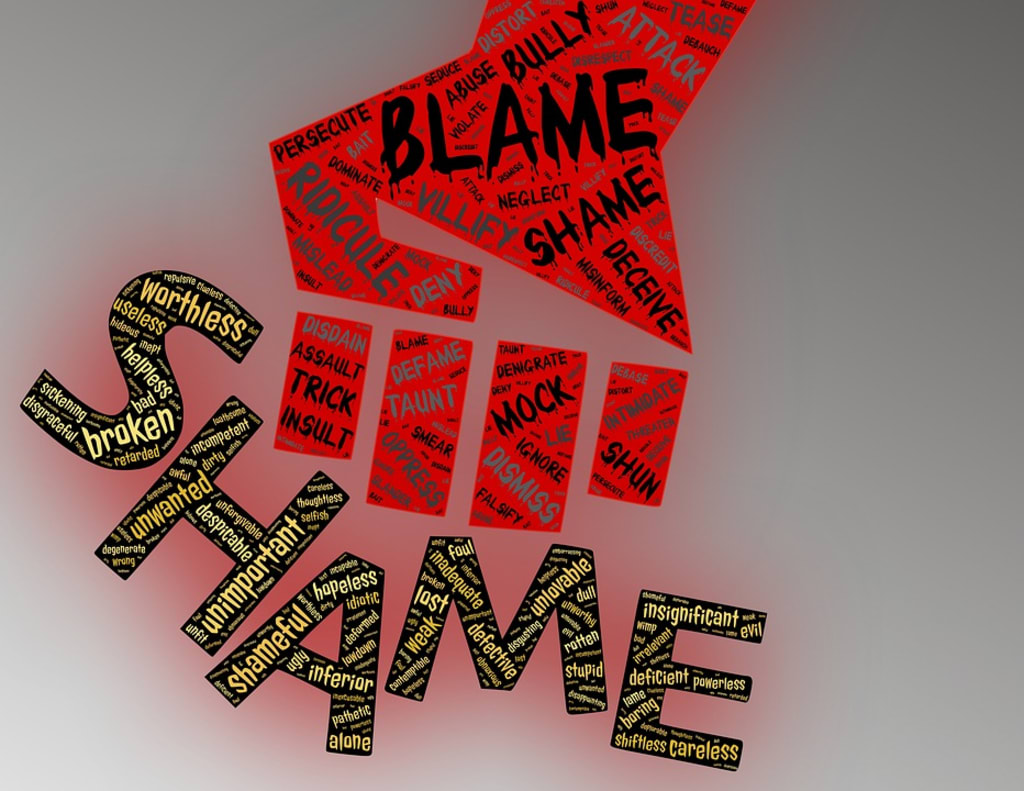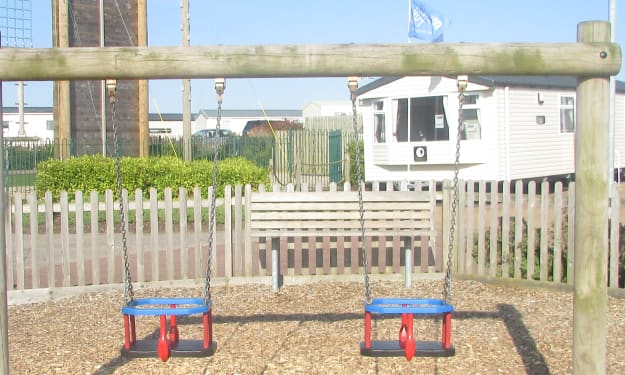Childhood Bullying
This is an article written about my experience of childhood bullying, to help parents who may have children experiencing it.

I remember those lonely, hard school days. Nobody would have believed how sad I really was because I always tried to fake a smile and pretend that everything was alright. I would dedicate myself to my schoolwork, even though I struggled, talk to other children, and try to engage in all aspects of school life.
On the inside of myself, it was a completely different story, I was depressed, emotionally worn out, distant from myself, uncomfortable in my own skin, and lonely. I would wear make-up to hide the bruises and put on the mask of the "tough one" just to satisfy the bullies. In reality, I was a very sensitive, soft person, who didn't like violence, however I always felt I had to hide behind a mask to hide what was going on.
The bullying was every day. I was called names, put down, forced to do things I didn't like, and violently attacked for no reason, other than just being friendly, polite and not the kind of person who took drugs, drank a lot or caused trouble. I was also bullied severely for my mixed taste in music which included heavy metal, rock, reggae and dance music.
One day, I got to a point where I couldn't take anymore, because the bullying also extended to days when I wasn't at school. I started being teased, provoked, manipulated and tormented for the clothes I wore, to the boyfriend that I chose, and eventually I isolated myself, preferring to spend time alone or indoors rather than out, or at my boyfriend's flat, just to get away from it.
A child who is being bullied is not likely to tell anybody what is happening because sometimes when a child does speak out, it can make the bullying worse and they may even be threatened for it. Bullying can erode a child's mental health, self-confidence, self-esteem, and many other psychological aspects of the child, it can also cause them to have a distorted view of themselves and their physical appearance. You may find that some days they appear ok, and other days they may seem fine, but depressed at the same time. I used to do this a lot, it is part of hiding under a mask in an attempt to not show the shame, fear, anxiety that they may be feeling because of what is happening to them. A child may suddenly start doing things that they wouldn't normally do such as drinking, taking drugs, staying out late, changing their hobbies, and changing their appearance in an attempt to "fit in" and get the bullies to back off.
As you can see, detecting bullying is not easy, as a child can cover it up, which is their way of trying to hide and deal with what is happening to them. Another point I would like to make is, they may go into a state of denial and act as if nothing is happening. However, there are some clues you may be able to look for, if you suspect that your child is being bullied. One thing I did was use make-up to cover the bruises, including heavy concealer to cover black eyes. You may also find that if you ask a female child about their black eye, they may tell you that it is "just eyeshadow." Both females and males may also make excuses up such as "I fell over" as an attempt to cover up what really happened. Withdrawing from social contact, suddenly not wanting to go to school, and spending heavy amounts of times in a child's room can sometimes be indications of bullying. Where as some of these things can be just a part of growing up, children who are being bullied may withdraw altogether, spending excessive amounts of time alone.
Bullying can be an extremely difficult issue for children to deal with. Telling children to "get out there and fight the bullies back" will just encourage more violence, and may also particularly erode a sensitive child's confidence. Telling a child they are not "tough enough" may cause the child to feel that the only way to deal with the bullying is to be tough and react with violence, which may get a child seriously hurt. The best thing to do if a child is being bullied is let them know it is ok to talk when they feel they can do so, and in a place where they feel safe. You may need to reassure them that people care and want to help them, though many children need to know they will not get hurt in the process. This is a tough one, because bullying often takes place where it cannot be seen ,and the bullies may retaliate with violence. Encourage your child to call the police, but please understand that if the bullies find out, the problem can escalate, however the police will be aware of this. A child may not want to reach out to other professionals such as teachers, particularly if the bullies share the same school. It is important to encourage your child to do this, so that the teachers are aware of what is going on, and many schools now raise awareness of the subject, and attempt to create a support network for the child which can be helpful.
It is important to teach your child to care about themselves and also to encourage them to do things that enable them to build mental strength. When I was a child, I found strength in reading and writing stories, this kind of creativity gave me a "mental break" and I was able to absorb myself into another world, if just for a little while. Swimming, biking, and keep fit was also helpful because it enabled me to do an activity I enjoyed without fear. Caring includes encouraging the child to take care of their emotions, if they cannot talk to anyone, do try to encourage them to at least talk with a doctor, and reassure them that the bullies will not find out. If your child is reassured in this way, she or he may be able to confide in a doctor, who can refer both you and your child for extra support.
A final important note: Childhood bullying can also impact a child's adulthood, and the bullying does not always stop in adulthood either. With this in mind, it is really important to let your child know that being bullied is not something that they have to put up with, and also that it is a form of abuse. Make sure that your child knows they can reach out to professionals, family, close friends and also that they know who to contact. When I was a child, child-line (0800 1111) were a very good source of confidential support for me when I was being bullied, and I could talk with them in the strictest confidence without anyone having known I called them. Sadly for me, the bullying did continue into my adulthood and it severely impacted on my mental health for a very long time, I found my doctor and my community mental health team really helpful to talk to about this, and my community mental health team offered me counselling and various therapies in order to deal with this. It is also important that if your child does not want to talk, please do not push them, this can be hard when you are seeing that your child is suffering, however your child needs to talk when he or she is ready to. Trying to force your child to talk, may push them away further. The best thing to do is to reassure your child that he or she is loved, valued, and worthy, and tell her or him that when they are ready to talk, you will be there to listen.
About the Creator
Carol Townend
Fiction, Horror, Sex, Love, Mental Health, Children's fiction and more. You'll find many stories in my profile. I don't believe in sticking with one Niche! I write, but I also read a lot too.






Comments
There are no comments for this story
Be the first to respond and start the conversation.